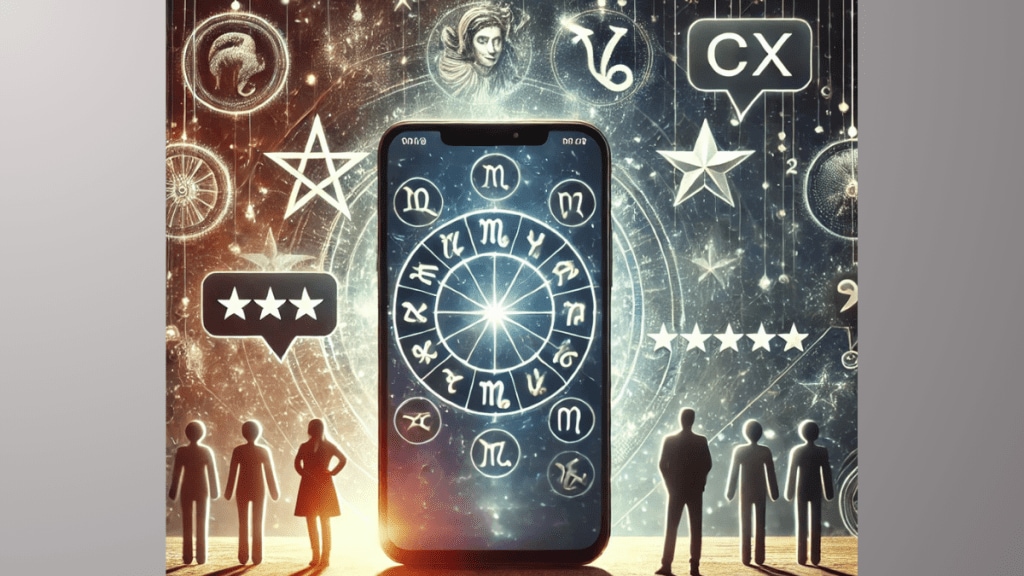Life is nothing but an unpredictable journey, and perhaps for many astrology allows it to be predictable to a certain aspect. This is also a reason behind the rapid rise of online astrology platforms, such as Astrotalk, Astroyogi, and Clickastro. However, customer service and experience have become major areas of concern, with these platforms now drawing flak from users. One of the LinkedIn posts specifically criticised the astrology application, alleging that the astrologers on the platform prolong sessions unnecessarily to increase chat time and charge customers without delivering meaningful insights. “Astrotalk is made to extract money from customers by dragging chat time. Their so-called pundits tell you they check your Kundli, and the customer waits and pays without receiving relevant information. If you don’t give them the desired ratings, they threaten to perform rituals against you,” Taranveer Sharma an aggrieved customer told BrandWagon Online.
While demand for digital astrology services continues to grow, particularly among younger generations, it is believed that platforms should address critical CX concerns or risk damaging their reputations. The global astrology market which was valued at $12.8 billion in 2021, is projected to reach $22.8 billion by 2031, growing at a CAGR of 5.7% from 2022 to 2031, as per Allied Market Research – a research agency.
Recently, social media platforms like LinkedIn saw a series of posts which went viral where users shared troubling experiences with online astrology apps. Some posts have gone so far as to describe encounters with astrologers who responded aggressively to negative feedback, with one individual claiming they received life threats after posting a bad review.
This pattern of negative behaviour seems far from isolated. Nisha Popli, another customer shared a similar story about her experience with Astrotalk. After being drawn to the platform by its widespread marketing campaigns, she decided to test the service out of curiosity. However, her consultation lacked depth and professionalism, and when she gave the astrologer a low rating, she was met with veiled threats. “As a professional, I understand the power of effective marketing. However, there is a significant issue when marketing overpromises and the actual service fails to deliver. After I gave the astrologer a low rating, he implied that unless I gave a better rating, he would perform some sort of ‘Jaap’ to harm me. As someone who believes in astrology, it’s disheartening to witness such behaviour from a platform that should prioritise consumers’ trust and experience,” Popli said.
“We have banned the profile of the astrologer who behaved that way. We do not condone such actions, and we are providing guidelines to astrologers on how to interact with users. However, this can happen with any brand—sometimes individuals get frustrated by negative ratings or reviews and may act out. In terms of marketing, we don’t send SMS or emails but rather invest in Google and Meta for promotions,” Puneet Gupta, founder, Astrotalk, said.
Industry experts opine as a business, meeting revenue targets is of utmost importance, and this leads to such issues. Nikita Jain, who has worked with both Astrotalk and Astrosage, noted that the pressure to meet commercial demands can lead to exploitation. “These applications exploit people’s emotions through advertising and marketing with questions like, ‘When will my ex come back?’ or ‘Will I marry my current boyfriend?’ They offer a four-minute free call, but no astrologer can provide accurate predictions in such a short time. These apps mainly target users between the age of 15-20 years and often provide random information,” she said.
As the online astrology market continues to expand, particularly among younger generations like Gen-Z, it is believed that maintaining a balance between business growth and customer trust will be key to these platforms’ longevity. Even as marketing continues to help in the acquisition of new customers, a better experience will help in retention. Industry experts say that Gen-Z and millennials are leading the surge in online astrology. “Together they comprise more than 85% of all online astrology services. Gen-Z are more cost-sensitive to cost and most question in relationship and early career,” Nitin Verma, founder, InstaAstro, said.


